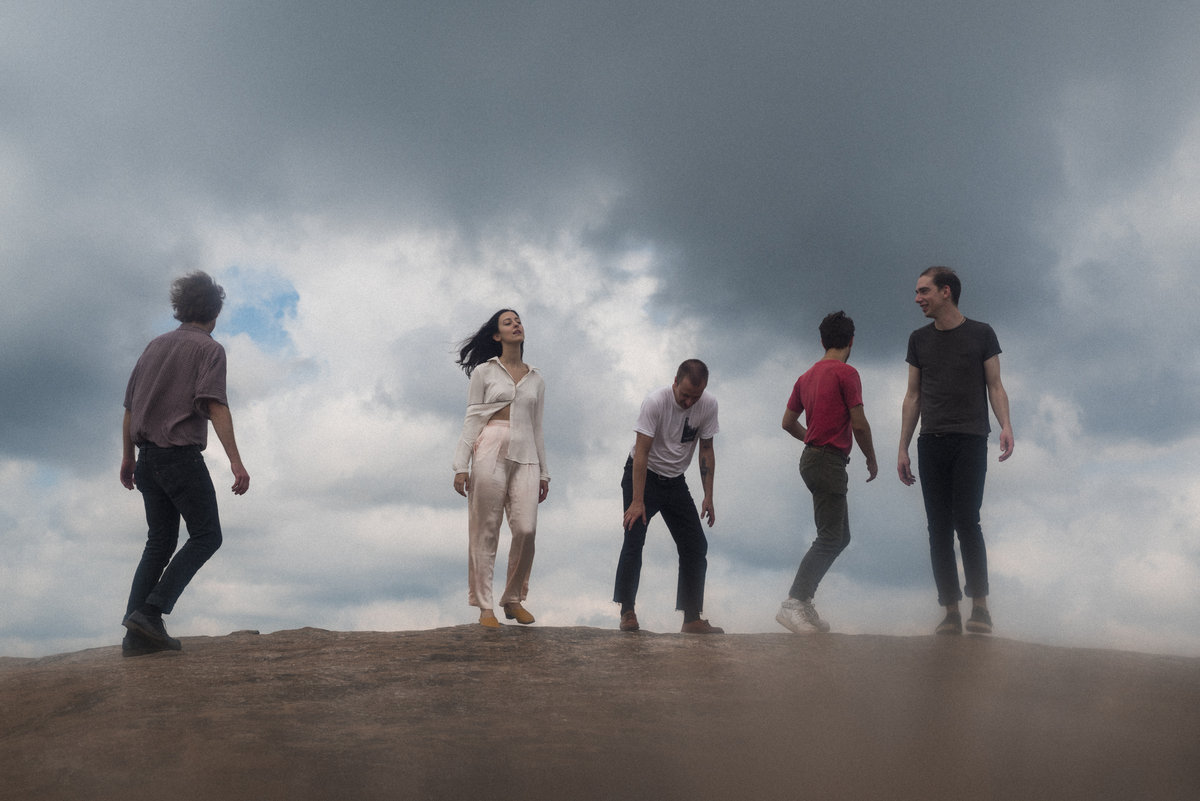Life is messy and complicated. We do our best to force it into neat compartments, to bring rational order to chaos, but life always resists. On a basic macro level, albums are often an attempt to give voice to some unifying theme or confluence of ideas. That can take the shape of a guiding philosophy or a formative experience or an overarching aesthetic. As listeners, we instinctually seek out that underlying thread, a string we can tug on to tie it all together. As we pull, what’s bundled within is a piece of existence laid bare for probing and examination. The more of it we recognize and understand, the tighter we yank our knots.

Listening to the sprawling new full length from Karaoke, it’s evident this is a record that resists such snares. It’s an album that thwarts expectations and defies easy categorization. There is no single thread to pull and when you do draw on one of its gauzy cords, it only yields more slack before fading into mist. According to bandleader Grace Bellury, that’s not necessarily by intent, but more so a willingness to accept natural disorder and disarray.
“I used to be really fixated on things I create having a theme,” Bellury says. “Like, all the elements and ideas and aesthetics being tied nicely and tightly together. I’ve come to realize that’s just not how my brain works or how life happens. I’m a deeply messy and fragmented and multi-faceted person, and the writing process for this album is no exception to that. I’m learning to embrace and even cherish randomness and messiness, in music and in life.”
That’s not to say, of course, that the shadowy, dream pop underworld that Karaoke carefully constructed on their debut has been entirely stripped away. There are moments, such as the mercurial “Ride Off into the Doom” or the entrancing “Baby” where the band’s ability to conjure an eerie moonlit luminescence remains the defining feature. But elsewhere, the gauzy atmospheres and murky textures that comprised How to Make You Boil have been replaced by soundscapes far more glassy and refractive. When they are not stabbing in bright shards, Tymb Gratz’s guitars sparkle and shimmer. Meanwhile, Chris Yonker’s undulating bass pulses and pulls against Adrian Switon’s elastic percussion, creating a sense of kinetic motion that’s constantly rolling forward.
Much how glass can amplify, diffuse, or redirect light, so too does the band’s dazzling emissions help propel and guide Bellury’s vocals. The sharp rhythms and textural interplay serve as springboards. Where Bellury’s voice once floated in spectral repose, it now flutters and skips off the gleaming surfaces. And with that movement comes greater space and more illuminating light. The dense fog that enshrouded the group’s earlier work has been lifted to expose a more prismatic and wide-ranging universe.
When asked up this evolution in sound, Bellury is quick to credit the addition of Zach Pyles to the band, specifically his sensibilities as a recording engineer. While his contributions on synth and keys have helped flesh out new sonic territories for the group, Pyles’ talents in the studio have allowed Bellury to further hone Karaoke’s aesthetic. On tracks like “Bad Christian” and “Heaven,” the band embarks on dizzying excursions that veer into iridescent psychedelia and ambient drone. On the latter, Pyles stacks up the layers, recording, among other things, the sound of a humming refrigerator and a vacuum cleaner starting up. This more daring approach helps expand the boundaries of the band’s alluring art pop. Overall, it was a process Bellury found invaluable, ushering forth greater confidence—and hence, more vulnerability—in the group’s songwriting.
“Our EP was a little more washed-out sonically, more dream pop,” Bellury explains. “This album has a lot more space. A lot more vulnerable moments. It’s more dynamic. And the vocals are more forward and intimate. Which I think relates to my growth lyrically. The more confidence I feel with the words the more clarity I’m comfortable with in the recording.”
Anyone who’s listened to Karaoke understands Bellury’s voice is undoubtedly the group’s primary focal point. She has a rarefied ability to make even the most abrasive noise or mundane note sound ethereal and dreamlike. In the lead-up to the album release, however, the group unveiled a suite of five videos. Each one was conceived and produced by Bellury and features an individual member of the band. For Bellury, it was a means of pointing the lens away from herself as the front person, thus highlighting the group as a collection of talented individuals.
“It’s not necessarily about stepping out of a role as a front person,” she says about the concept behind the videos. “[It’s] more about wanting to highlight the contribution of each member of the band. I really do feel Karaoke is a unique and special combination of people. I haven’t always felt with past projects that a single member would be irreplaceable like I do with this one. On that note, I do get approached by people wanting to make videos or media centered on me as the focus, and there’s nothing wrong with that as a general thing in the music world. I just find the music we make together as a whole more interesting. If I didn’t lean so heavily on the rest of the group for their input and ideas about arrangement, I might feel differently.”
Stream Blood, Piss, Religion, Pain below.
More Info
Bandcamp: karaokeatl.bandcamp.com
Instagram: @karaokeisaband

